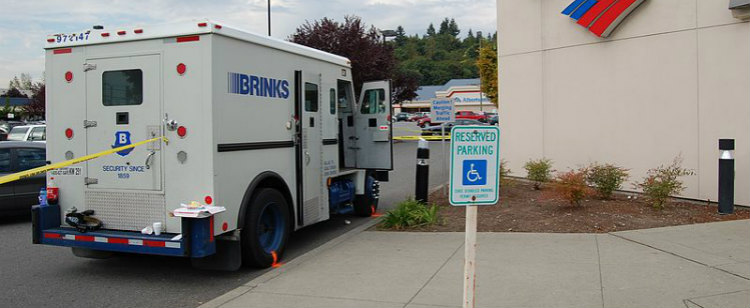Brink’s Incorporated, the world leader in armored transport, has been hit with a proposed class action lawsuit that accuses the company of failing to pay its couriers overtime, in violation of federal and California State law.
Drivers & Couriers Sue For Right To Overtime
In recent years, couriers and delivery drivers from across the country have been standing up for their overtime rights in a big way. Wage and hour lawsuits are particularly common in the “sharing economy,” with companies like Caviar and Amazon coming under fire for their pay practices. While these companies classify drivers as “independent contractors,” actual employees say that designation couldn’t be further from the truth.
Brink’s Armored Car Workers File Class Action
Some of these courier lawsuits have already come to fruition. Three years ago, Fedex paid out a whopping $228 million to resolve accusations that the company had been misclassifying delivery drivers for years.The Brink’s lawsuit, filed in November of 2014, is different. The class action describes a common – and apparently unsolvable – conflict between the armored car industry and some state labor laws.

Some states, including California, require that workers be provided with uninterrupted rest and meal breaks during their shifts. Drivers, messengers and guards for security and logistics companies, on the other hand, are often required to remain vigilant at all times.
Considering the valuable cargo of armored cars, this requirement is understandable, but for a company like Brink’s, it would seem to make complying with California law very difficult. According to current and former Brink’s employees, the company’s policy of constant alertness made legal compliance impossible.
Washington Judge Rules In Favor Of Employees
Alongside the recently-filed California class action, initiated in the Los Angeles County Superior Court, is an earlier lawsuit filed in Washington State.
In the 2011 case Pellino v. Brink’s, a group of armored car drivers and messengers accused their employer of violated Washington’s mandatory break laws by requiring “active observation and mental exertion at all times.” Two of the State’s courts, including a Court of Appeals, agreed with the employees, awarding the class of drivers over $874,770 in back wages, along with interest and attorney fees. At the time, 182 Brink’s drivers and guards had signed on to the class action, receiving almost $5,000 in back pay each.
More recently, an armored car driver from New Jersey won a major court victory, which could have sweeping consequences for employees across the country.
When Do Drivers Have A Right To Overtime?
Some workers who drive for a living are not entitled to overtime wages, under the little-known Motor Carrier Exemption in the Fair Labor Standards Act. The exemption covers every job position that has its minimum qualifications and maximum work hours set by the US Department of Transportation.
There is, however, a new exception to this exemption. As outlined in the 2008 SAFETEA-LU Technical Corrections Act, drivers who spend 50% or more of their working time operating noncommercial vehicles – ones that weigh less than 10,000 pounds – are fully entitled to overtime wages and the minimum wage.
New Federal Rule Extends Right To Premium Wages
Some companies, though, haven’t caught up to the new legal terrain. The law expanded overtime rights to thousands of mechanics, drivers and loaders – but also created immediate controversy. Classifying employees who work on both commercial and noncommercial vehicles has been difficult and courts have disagreed in specific examples.
Trenton-based Eastern Armored Services found itself on the wrong end of a driver’s class action lawsuit in 2011. In her complaint, former Eastern Armored employee Ashley McMaster said that her employer had improperly classified her as exempt from overtime wages, despite the 2008 Technical Corrections Act.
District Judge Michael A. Shipp put his weight behind a straight-forward reading of the Act’s text, holding that any driver who uses a noncommercial vehicle – even for just a small portion of their job – is eligible for overtime. That overtime requirement, Judge Shipp wrote, applies to all of a worker’s hour, not just those during which they drive a noncommercial vehicle.
